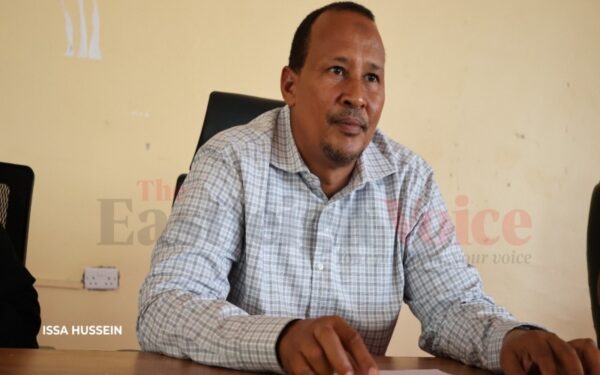Miraa Bill sparks debate over public health concerns, livelihoods in Wajir

Under the proposed law, all miraa traders would be required to obtain operating licences and sell only in designated areas approved by the county. The Bill also proposes that miraa should not be sold alongside food or drinks in the same premises.
The debate over how to regulate miraa (khat) and other substances in Wajir County intensified on Tuesday as the County Assembly's public participation on the Miraa and Other Substances Control Bill, 2025, entered its second day.
More To Read
- Government steps up push for miraa cooperatives to enhance oversight, security
- Murkomen orders crackdown on reckless miraa vehicles along Mwea–Embu highway
- Kenya secures Djibouti as new miraa export market in major boost for farmers
- MPs demand tough action on reckless miraa drivers
- Miraa farmers struggle to sell produce as traders reject new prices in Kagwe's directive
- City Hall gets approval to begin construction of Miraa Market in Ziwani estate
The session brought together miraa traders, residents, and local leaders in a spirited discussion that underscored the challenge of balancing public health concerns with economic realities.
Speaking after the session, Aden Bulle, the Member of County Assembly (MCA) for Waberi Ward, said the proposed Bill had already passed its first reading and was now at the public participation stage before returning to the Assembly for further debate.
"This Bill mainly dwells on miraa and other substances that affect our youth," Aden said. "It outlines clear ways to control miraa and drugs within the county."
According to Aden, one of the Bill's key proposals is the zoning of miraa trade, requiring the county to designate specific areas for the sale and distribution of the stimulant.
The draft law also seeks to ban miraa sales near schools and places of worship, including mosques, to protect minors and preserve the sanctity of religious spaces.
"If this Bill goes through, it will bring immense benefits to the community," he added. "It will create a framework for managing and controlling miraa and other substances that have been contributing to youth addiction."
The MCA noted that while miraa remains a source of income for many families, its unregulated trade has contributed to youth unemployment and addiction challenges.
Maryan Abdikheir, Vice Chair of the County Assembly Committee on Culture, Gender and Community Service, echoed Bulle's sentiments, stressing that the Bill's goal is regulation, not punishment.
"The Bill is about establishing control measures to address community concerns," she said. "It does not seek to shut down the miraa trade but to ensure that it operates in a responsible and regulated manner."
 Waberi Ward MCA Aden Bulle addresses participants during public consultations on the Miraa and Other Substances Control Bill, 2025, at ICT Hall in Wajir Town. (Photo: Issa Hussein)
Waberi Ward MCA Aden Bulle addresses participants during public consultations on the Miraa and Other Substances Control Bill, 2025, at ICT Hall in Wajir Town. (Photo: Issa Hussein)
Under the proposed law, all miraa traders would be required to obtain operating licences and sell only in designated areas approved by the county. The Bill also proposes that miraa should not be sold alongside food or drinks in the same premises.
Maryan added that the legislation also covers the sale and use of other harmful substances, part of a broader effort to curb rising drug abuse among young people.
"This is about social responsibility," she said. "We want to protect our youth and bring order to a trade that has long operated informally."
Local traders used the platform to voice their concerns, many expressing cautious support for the Bill but urging fairness in its enforcement.
Saadia Abdille Maalim, a miraa trader, said she welcomed the regulation but asked that authorities consider the realities of those who depend on the business.
"We support this public participation and the proposed miraa Bill," she said. "We only sell miraa and water; we have no problem with designated distribution points."
However, Saadia raised alarm over a cheap miraa variety known locally as moguka, which she said was increasingly popular among minors.
"We need to deal with the type called moguka because it is very cheap and easily accessible to children," she said. "Other varieties are more expensive and mostly bought by adults, but this one is contributing to a rise in underage use."
Religious leaders who spoke called for a total ban, urging traders to seek an alternative source of livelihoods.
The Miraa and Other Substances Control Bill, 2025, continues to generate heated discussion across Wajir County.
For many, miraa is both a cultural staple and an economic lifeline, but as leaders and residents debate its regulation, one question remains: Can Wajir strike a balance between livelihoods and public health?
Top Stories Today















































